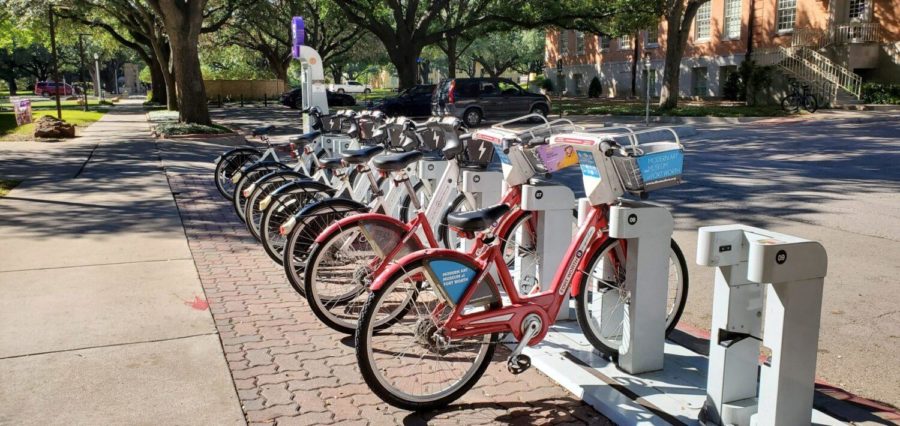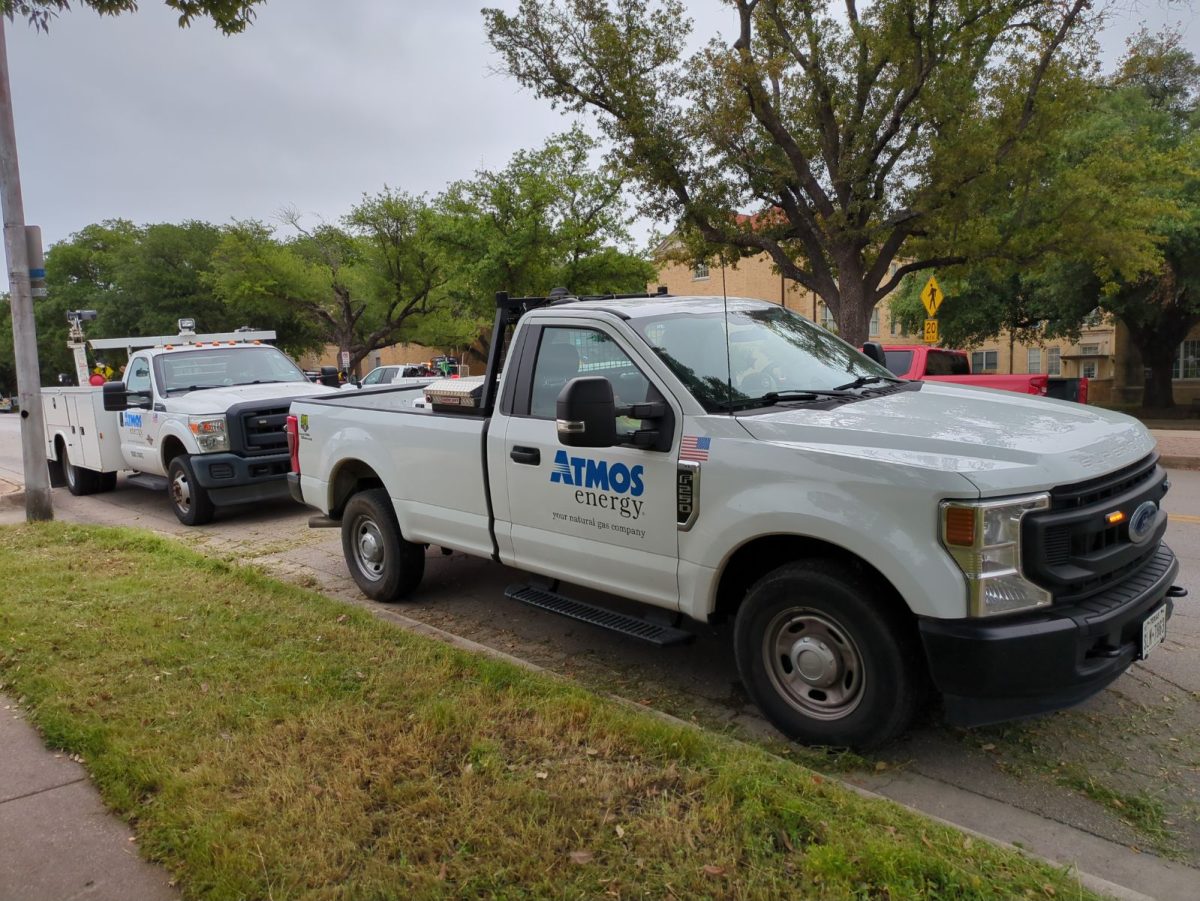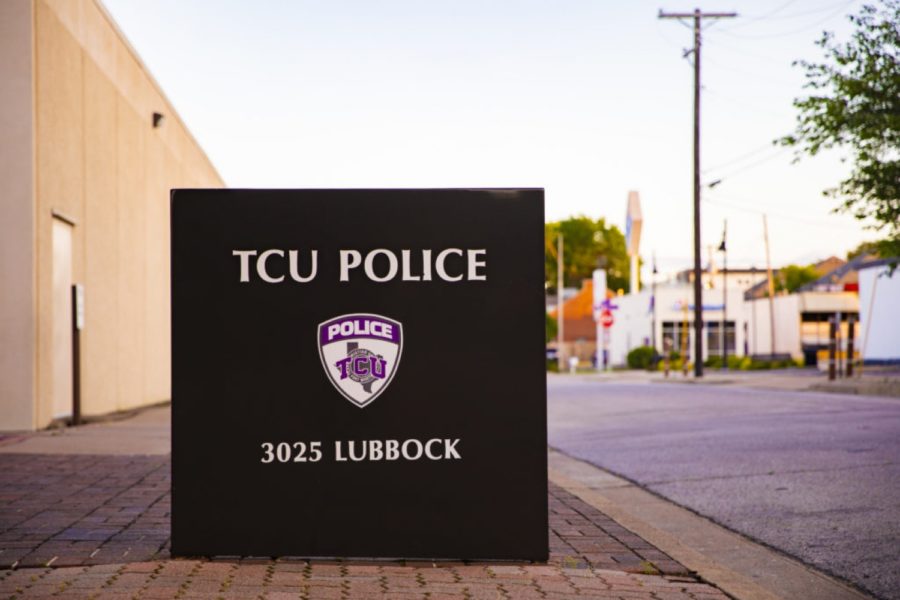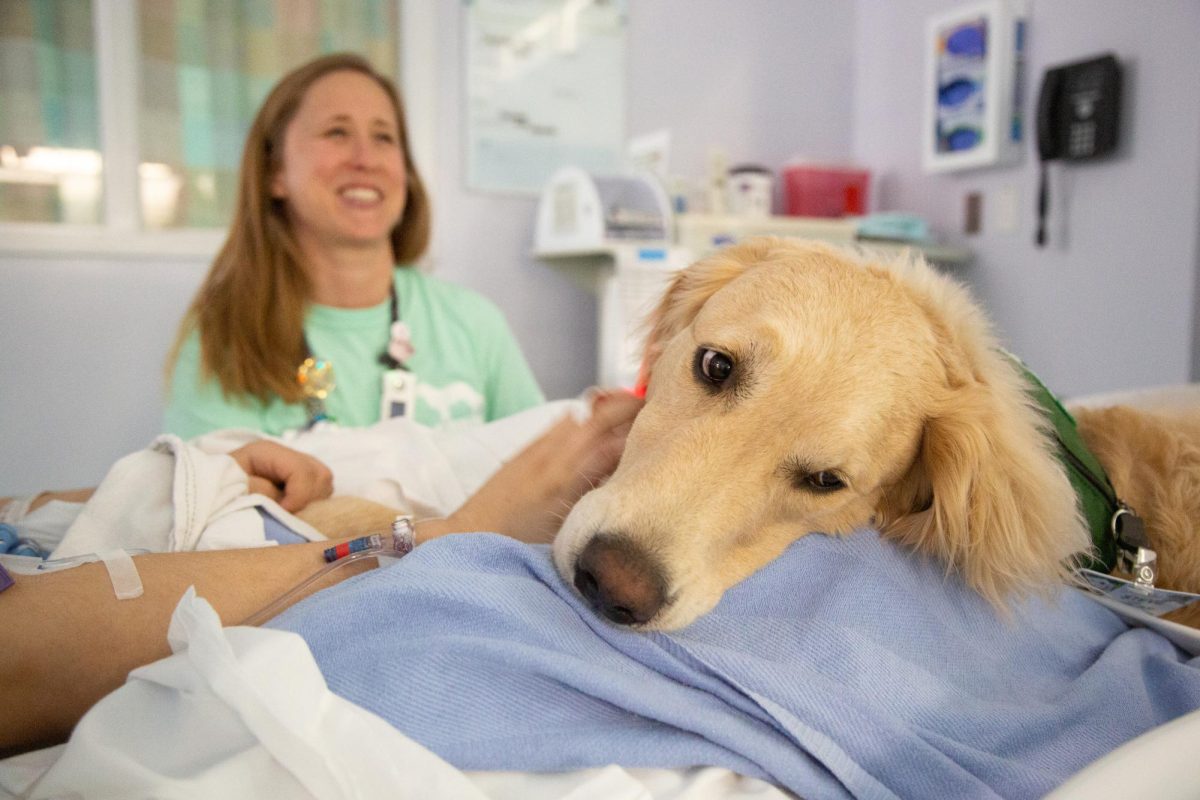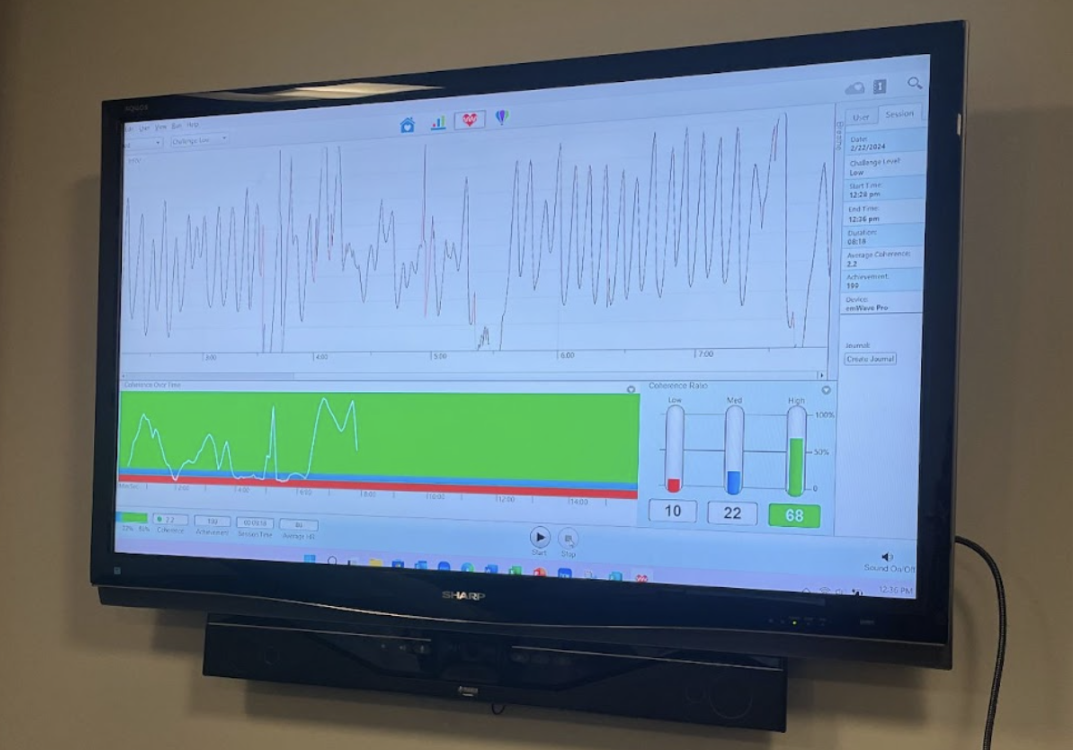TCU added two kiosks from the Fort Worth Bike Sharing program on campus over the summer as part of a larger effort to promote healthier and more sustainable alternative transportation – and students are already hopping on board.
Senior Alex Matthews, a computer science and math double major, said the rental bikes offer a good option for students who want to avoid the hassle of maintaining their own bikes on campus.
“It’s a very fun thing to just know it’s there because biking is something you can do casually. You don’t have to be super athletically talented,” said Matthews.
Matthews rents bikes from the station in Worth Hills, which was installed in June along with one on Lowden Street on the north side of the Mary Couts Burnett Library.
“We kind of had time to get them settled and make sure there were no kinks before the students came back for August,” said Fort Worth Bike Sharing director Jennifer Grissom. “But it was amazing, they started being ridden right away.”
The bike sharing program has about 500 active users from TCU, including 66 new users who registered in the last month, said Grissom.
As of Sept. 9, the kiosks at Lowden and Worth Hills have had a combined 588 checkouts since their installation.
“We would love to see those numbers grow, but we’re very impressed with that and glad that people are utilizing that system,” she said.
Growing the bike sharing program at TCU
The new bike stations join two existing kiosks located near TCU on West Cantey Street and at the intersection of West Berry Street and University Drive.
TCU holds a membership with the bike sharing program that allows students, faculty and staff to ride for free for up to two hours by registering with their TCU emails.
Jude Kiah, assistant vice chancellor for Student Affairs Administration, said he pushed for TCU to continue its membership with Fort Worth Bike Sharing after he came to campus three years ago.
“I was actually using the bikes at night a fair amount, so I had lobbied with our folks on campus to continue the program,” said Kiah.
The discussion on membership led to a larger evaluation at TCU of the need for more kiosks connecting high-traffic paths on campus, especially in the wake of COVID-19.
“When COVID hit, we really knew that [the bike share program] would probably be a good healthy option and help replace the shuttles so that students weren’t in close contact with tons of other students,” said Grissom.
TCU and the Fort Worth Bike Sharing program narrowed down the two locations they believed would most benefit the student body. Already, the new kiosks have become popular with students.
“We’ve seen a lot of the trips go from the campus to the Magnolia area, which makes sense now that it’s happening, but I didn’t anticipate that so it’s kind of exciting,” said Grissom.
Matthews said he frequently rides to the Trinity Trails near campus with friends to visit the area’s cafe and dog park.
“It’s pretty much the only convenient place I've found nearby that has continuous biking routes,” he said.
Fort Worth has one of the most robust bike trail systems in the nation, said Grissom. “You can go from Benbrook to all the way north [or] very far east, all without having to cross car traffic,” she said.
Kiah hopes students use the bikes as a part of their everyday lives to cross campus, run errands and use the Trinity Trails system.
“We want students to interact with the Fort Worth community; we want them to be healthy and think of it as a recreational opportunity, and it’s a good opportunity for us to reduce our carbon footprint,” said Kiah.
Biking and sustainability
Before the Fort Worth Bike Sharing program launched in 2013, TCU sociology professor Keith Whitworth created the Purple Bike Program on campus to serve a similar purpose.
“I’ve always been a cyclist, and I noticed that there were a lot of international students who lacked transportation on the campus,” said Whitworth. “At the time there were not any bike sharing programs in Fort Worth, and so that was the initial idea was to provide students a mode of transportation.”
Whitworth, who teaches a course on sustainability, also used the program to bring attention to the concept of students’ carbon footprints.
“The secondary market probably, if you want to use that word, was to any student on the campus that could utilize the bike to not utilize their car,” he said.
As part of the Purple Bike Program, Whitworth organized the “Tour de Frogs,” a cycling tour of campus intended to bring awareness to cycling on campus. Riders stopped at stations at each corner of campus to take part in free activities and learn how biking improves personal and environmental health.
“There needs to be a connection between biking, not just for leisure or for pleasure, but also for the purpose of it’s a sustainable option and for students to understand their carbon footprint,” said Whitworth.
In the U.S., transportation produces more greenhouse gas emissions than any other sector, according to the Environmental Protection Agency.
At its peak, the Purple Bike program grew to more than 60 custom-made bikes. However, the program shuttered in 2011 after more than ten years on campus due to a lack of space for bike storage and maintenance.
Now Whitworth wholeheartedly endorses the citywide bike sharing program and its place on campus.
“I think that it’s what I always dreamed of and I wish we would have had the system they have,” he said. “It’s affordable, they’re always going to be properly maintained, they’re convenient and it’s just a great program.”
Fort Worth Bike Sharing regularly services the bikes at stations across the city. The program, which is part of Trinity Metro, also works closely with the city to place kiosks near popular bus stations and trailheads so students and Fort Worth residents can interact with the city’s larger public transit system.
Adding the bike kiosks to campus is just part of TCU’s efforts to integrate with local public transportation initiatives like ZIPZONE and Trinity Metro, said Kiah.
“We’ve talked to the folks at Trinity Metro about the redesign of their routes such that they would touch more of those student areas and then move people in heavier frequencies to and from the campus area,” he said.
Kiah said reducing the number of carbon-driven cars on campus is key as TCU’s student population grows and more students live a short distance from campus.
“Anything that’s less impact on our environment, our parking lots, our safety of pedestrians, the health of people,” said Kiah.
Gearing up for student promotion
Moving forward, spreading the word about the bike sharing program to students is a priority for TCU.
Kiah said he considers TCU to be a bike-friendly campus, but students may not realize the bikes exist or understand the convenience and health benefits of using them.
“We have great bike lanes and there are a lot of good ways to get across campus now, but teaching people to do that and marketing it to people - that’s really the next step,” said Kiah.
While there isn’t a timeline for adding other kiosks in the TCU area, Grissom and Kiah said they would be open to installing more if students express a need for them.
“I think ultimately the popularity of it drives what we’re going to do,” said Kiah. “It’s pretty clear that our students like it, and if the students are using it and they’re using it heavily, then it’s a great partnership opportunity for all of us.”
One hurdle TCU and the Fort Worth Bike Sharing program face as they promote alternative modes of transportation to students is public perception.
“I think it will take another couple of years at least for us to really feel like it becomes more of a norm to think about using a bike to go to the grocery store or go down to university village or even further than that, to take it on the trail and go downtown,” said Whitworth. “Right now it’s more of a novelty; it’s not necessarily utilitarian for most students.”
Grissom believes if enough students get involved, they can shift how others view their daily commute.
“There’s definitely a kind of peer pressure element,” said Grissom.
In the future, Grissom hopes TCU students who take part in the bike sharing program keep biking as part of their lifestyle after graduation.
“For students, I think specifically I would hope that they kind of develop a lifelong love of cycling whether it’s for fun or for commuting, but that they recognize that it’s a benefit to their life and to their community,” she said.



